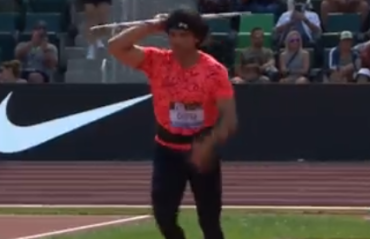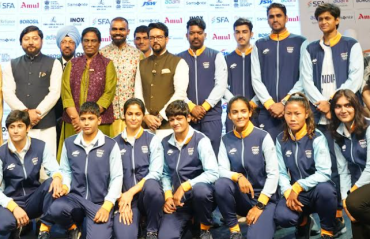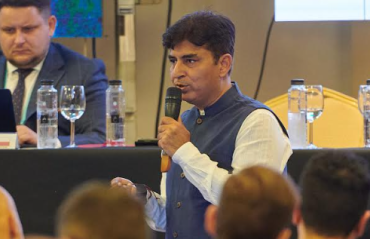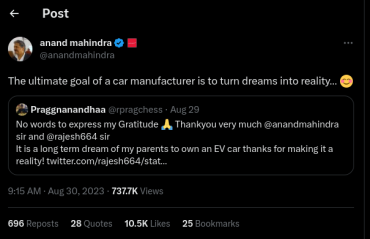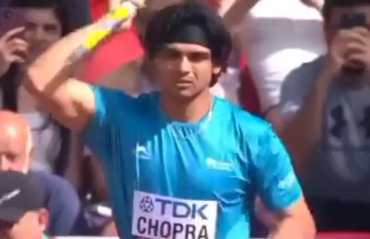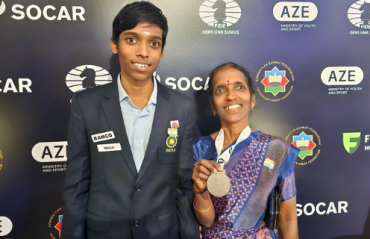New documentary series 'Dangals of Crime' delves into the darker side of Indian wrestling
- By Chiranjit Ojha

- March 11, 2022
RECENTLY, THE ARREST OF Olympic medalist wrestler Sushil Kumar brought to the light one of the darker sides of the sport in India: its connection with organized crime.
Following the much publicised indicent that shook up the sports communities in India, a documentary decided to go in-depth into the roots of the issue, tracing it back several decades, painting a clear, non-glamorized picture of how several wrestlers became a part of gang violence in Delhi and its surrounding states, and how the influence continued to evolve as India emerged in the world stage as a wrestling powerhouse.
The documentary, called "Dangals of Crime", is out on the Discovery+ streaming service, where subscribers can watch it for free.
TFG caught up with the director Niyantha Shekar, who discussed the idea behind the film and the process of making it,
"I came on board in July last year, so that was kind of my first introduction to the project and it took a few months of research, both phone calls and reading news reports and articles, and then on ground research, following which we spent about two to three weeks filming the documentary."
Shekar has dealt with the subject of sport before, when he directed a short documentary on Indian cricket KL Rahul called "KL Rahul - Shut Out the Noise." He has also made other documentaries like "Baraf" (A look at Mumbai's fishing supply chain) and Raqs-e-Inquilab (A profile of four Kashmiri artists). He described why, while making this documentary, he was careful to keep the narrative as grounded as possible,
"We wanted to tell the story through the voices of the people who lived it and they're part of this sport day in and day out, whether it's your coaches, your wrestlers or even the journalists who have covered the sport. These are journalists who have covered it for years... and we also wanted to visually capture what the world are like, what the akhadas are like, what the training facilities are like. What 'mehnat' looks like for a wrestler. We wanted to be true and authentic to that. So the choices that you see, visual choices, narrative choices, came from our understanding on the ground of what the world of wrestling is like in Haryana and Delhi."
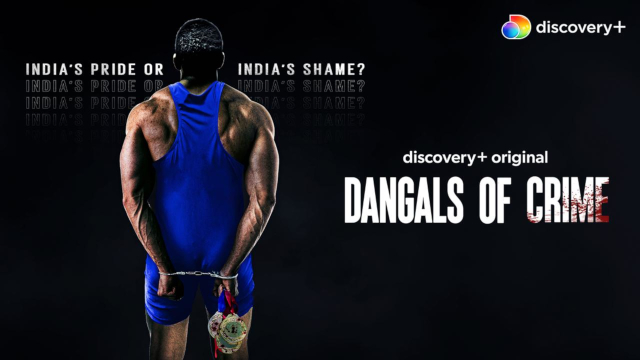
The people connected to Indian wrestling who were featured in this short docu-series, which includes some of the most renowned coaches in the country, were more than willing to talk about the bad influences that have plagued their sport, Shekar revealed,
"We spoke to the people on the ground saying, this is the intention of the film. We want to both show the... if you look at the documentary there's also the arc of wrestling over the past few decades, like how did we become a world beater, how did we become a country that could win medals at the top level. And we also what are the issues that the world of wrestling is facing. And so when we spoke to people on the ground about it, I mean, they themselves were able to recognise that there are issues that need addressing. So, that kind of balanced approach is something that we resonated with... at the end of the day if we are able to talk openly about it means that we can do something to improve it also. So it was an important first step, we believe. Let's talk about it and see what improvements can come off it."
When asked what may be causing such a significant number of wrestlers to become involved in criminal activities, Shekar presented the complex social scenario that gave birth to this phenomenon,
"There were a few different circumstances that we noticed when we spoke to people. One is that wrestling is a sport where you have to give a lot of your time to it. You go into akhadas which are like boarding schools. You can spend 15-20 years training. And it's possible that at the end of it you may not reach the top level. Like any other sport, very few make it to the top. And so what happens in the case of wrestlers is they come out not having made it to the top, and not having an education back-up as well. So it becomes harder for them to find jobs... find a plan B. And when you add the fact that they spent twenty years training how to fight... building their bodies. They become uniquely susceptible to bad elements that way because... many of them come from lower economic backgrounds. It costs a lot of money to become a wrestler, each day's diet is about a thousand, thousand five hundred rupees which is a lot of money for a family from a low income background to put into their kid to support them. If they've come through 20 years of this kind of environment, and they don't have a plan B, and they haven't seen the outside world because they've lived their lives in an akhada, they are uniquely susceptible. They're uniquely innocent to be manipulated, to be taken along the wrong path. And once they've stepped on the wrong path, it then becomes a slippery slope for many of them. So I think it's a confluence of different patterns that make wrestling in this region uniquely susceptible to the clutches of crime."
"Dangals of Crime" delves into all of these issues, while also showing how the sport of wrestling has improved in the last two decades due to success at the international level. This, however, still has not gotten the criminal influences out of the sport to that extend. Shekar pointed out,
"Wrestling, of course, has a greater spotlight now but the people who generally get pulled into the path of crime are those who are actually not in the spotlight, who couldn't make it to the spotlight, didn't make it to the top and hence don't have a plan B, don't have a path ahead in front of them, and so get pulled into the wrong path. So while the spotlight for the sport is great, it is making the sport feel a more viable option for many young people. So I think there's a lot of positive in the fact that this sport is getting a lot of spotlight. But if I have to look at people who priamarily fall into crime, it's often because they don't make it to the spotlight."
The documentary is presented on Discovery+ in two episodes of about half an hour each. It does a great job telling the story in a concise manner with crisp editing. However, the vast world and culture of Indian wrestling still has plenty of stories that could be told, the director said,
"I found the story of how we transformed into a wrestling community that could win at the top very interesting. Like the kind of efforts and the people that came in to take our exploits domestically and be able to convert it internationally. I think that are a lot of stories about the effort that went into that, the past heroes of Indian wrestling who unfortunately couldn't shine at the top level because they didn't have the resources that our wrestlers have today, so I think hearing about some of our past wrestling heroes was great because we've always had these wrestling riches in our country. What changed now is that the opportunities have increased, the resources have increased, training methodology has become more geared towards the Olympic levels. There were some parts of that, that we couldn't include."
Perhaps, a future documentary could further explore this transitional period and of Indian wrestling, and given his experience with the subject as demonstrated in "Dangals of Crime", Shekar could well be the man for the job.
You can watch "Dangals of Crime" on Discovery+ by clicking here.
Get the latest in the world of Sports, Teams, and Players! Free Delivery to your Inbox.










